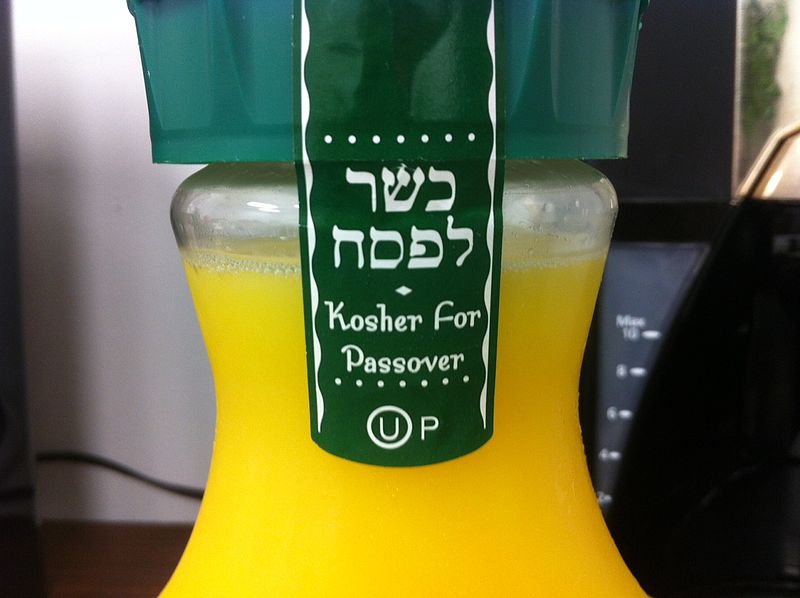
From Wikimedia
If you’re a foodie like myself, then you’ve probably heard the terms “Halal” and “Kosher” come up more than once. Like most people, you’re probably aware that these foods have ties to Islam and Judaism respectively, but may be unsure of what separates regular meats from religious ones. Whether you’re cooking for a Muslim or Jewish friend, or you’re just curious, here’s a post with some interesting information on these two kinds of foods.
Halal

From Wikimedia
The Arabic word “Halal”, usually used to refer to meat that follows traditional Islamic guidelines, literally means “permissible” or more accurately “lawful”, and can be used to describe any consumption or behavior which follows the rules set out in the Quran. For a piece of meat to be considered Halal, the animal it comes from must be slaughtered by a Muslim, ideally an Imam (Islamic cleric). The animal must be conscious during the slaughter, but must be killed quickly, through a single slit to a single point on the throat following a prayer. Furthermore, the blood must be completely drained before the animal can be butchered. Unlike Kosher food, Halal meat can be consumed alongside dairy and still stay within the relevant religious laws. This kind of meat was pretty sparse in Western countries for decades, but now you’ll have no problem finding a halal meat supplier who can deliver to you. If you’re cooking for Muslim guests, just remember that drinking alcohol is strictly prohibited by the tenants of Islam, so leave the wine in the cupboard!
Kosher

From Flickr
Similar to Halal, the word “Kosher” is derived from the Hebrew word “Kashrut”, which can be translated as “proper” or “fit”. The term “Kashrut” is also used to refer to the Jewish dietary laws set out by the Torah. The method of slaughter is more or less identical to Halal; the animal must be conscious, killed by a Jew, and with a single slit to a single point on the throat. Again, it must be drained of all blood before it can be butchered. The main difference is that it doesn’t require a prayer, although this is so customary in some orthodox Jewish communities that there’d be an uproar if the prayer was missing! Fruit and vegetables in general can be considered Kosher, provided no bugs have had contact with them. Unlike Muslims, observant Jews cannot consume meat and dairy foods together. Again, unlike Muslims, they can consume alcohol, although Rabbis encourage moderation. There are certain Kashrut rules surrounding wine specifically. For wine to be considered Kosher, the whole process, from the harvesting of the grapes to the bottling, has to be handled or at least supervised by Jews who observe the Sabbath. One more thing to remember – some more orthodox Jews have certain beliefs about grills and cooking utensils being Kosher, but this is a small minority.
Whether you’re preparing a meal for religious friends, or you just wanted to know a little more about these spiritual foods, I hope that this post has helped!
